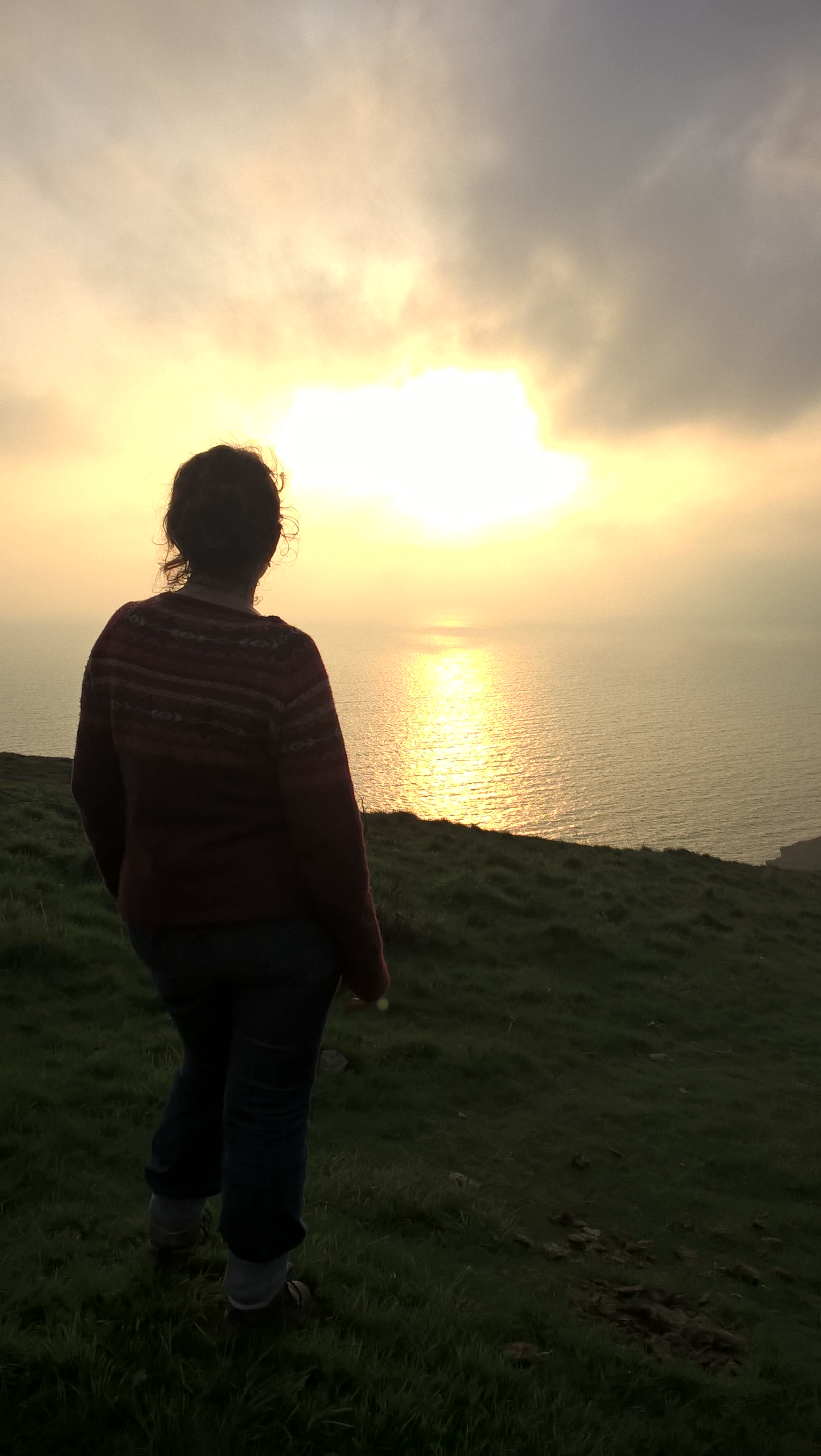We’ve come back from such a tranquil, peaceful break at a National Trust Holiday Cottage – this one was down a long lane which said “No Cars”, and then we turned off to an even smaller lane where the grass swished against our exhaust pipe. It felt so safe and undisturbed. I felt myself calming as we slipped further away down these winding lanes. While we were there, we did a lot of walking. Taking the car out was less attractive than just putting on boots and setting off. And while we were there, the remains of Hurricane Ophelia made her presence felt.
She did great damage in Ireland, but where we were, we felt the effects of a dramatic weather event, without the destructive force. My notebook went with me as we walked, and I tried to record something of the landscape’s response to the storm.
St Gabriel’s Chapel


Walks from the door.

Seatown beach, with Golden Cap behind. There is an excellent pub, The Anchor to refresh the weary walker! Portugese man of war jellyfish washed up on the beach.
We stayed near the ruined chapel of St Gabriel. As I sat to write, my thoughts diverged down two paths. As an experiment, I’m trying to explore both paths in poems, each path taking as it’s starting point the experience of sitting in the chapel as the wind blew. This first poem follows a more direct path, the one we took over the cliffs back to another cottage where we had stayed as a family years ago, a place full of memory. It was so good to retrace such freedom and laughter. Next door Downhouse Farm runs a garden cafe with delicious food, and we enjoyed resting and recovering there, before turning back. It was a long walk, taking in Golden Cap, the highest point on the south coast, and as we climbed and descended, the sky began to turn a strange red, as the dust that came before the storm filled the air.
St Gabriel’s Chapel, Dorset,
Storm Ophelia
1
From inside this small, stone chapel,
over broken walls
I can see the sea –
the wild white water crashing
into the cob at Lyme,
the many clouds moving fast,
as one, the sky sliding
against the earth
as leaves
scratch in corners,
tangle in hair.
Yesterday the trees held
more, far more,
when we walked seven
hard miles of cliffs
and troughs,
back to the place
we were
years ago, when
we were
all so much younger,
and we walked, and ran,
with Bessie the dog,
down, down to the sea.
We retraced those steps
more slowly, yesterday,
but look how far
we walked,
look how far
we have come.


Thank you to Peter Skevington for the photographs.




 The Ancient Mariner, at Watchet harbour, where the poem unfolded in Coleridge’s mind. The rope is particularly powerful.
The Ancient Mariner, at Watchet harbour, where the poem unfolded in Coleridge’s mind. The rope is particularly powerful. 
